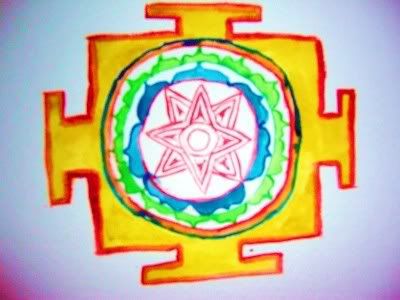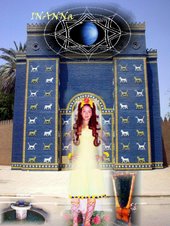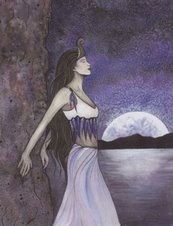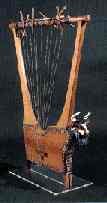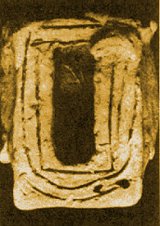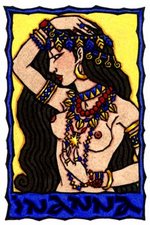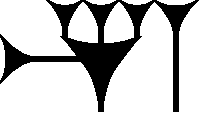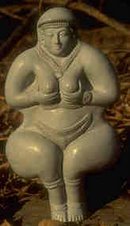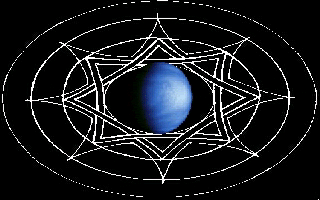Inanna all around us (even if we don’t know it)
In the book Maia by Richard Adams, Occula, a black slave-girl, invokes Kantza-Merada. She uses the same epic stanza as in the book Inanna: Queen of Heaven and Earth.
Then, as she entered the fifth gate,
The gold rings were taken from her fingers.
“Pray what is it now you do to me?”
“Most strangely, Kantza-Merada, are the laws of the dark world affected.
O Kantza-Merada, do not question the ways of the nether world.”
The sixth gate is the jeweled breastplate, the seventh, the fine garments of her body.
“Most strangely, Kantza-Merada, are the laws of the dark world effected. O Kantza-Merada, do not question the laws of the nether world.’
At the word of the dark judges, that word which tortures the spirit,
Kantza-Merada, even the goddess, was turned to a dead body,
Defiled, polluted, a corpse hangin’ from a stake—
“Kantza-Merada, from the great above she descended to the great below. The goddess abandoned heaven, abandoned earth,
Abandoned dominion, abandoned ladyship,
To the nether world of darkness she descended.
Maia asks why did the great goddess was turned into a dead body.
Occula replies, “Why she died for us of course. She resigned herself to every foul thing that could happen to her.”
Maia said, “Then what?”
“After three days and three nights had passed away—
“Upon her defiled body,
Sixty times the food of life,
Sixty times the water of life they sprinkled,
And Kantza-Merada, Kantza-Merada arose.
When Kanzta-Merada ascended from the dark world,
The little demons like reeds walked by her side—
(Adams, 98)
Occula then says she wandered the world, and that’s another story, but she was saved. And Kantza-Merada does indeed save Maia and Occula, the Goddess of Love is also the Goddess of the Underworld, and it gives her even more power, more power to save the female from masculine treachery which is so profuse, which has always been profuse.
Another book that has has Inanna but by her other name, Ishtar, is Piers Anthony’s Pretender, which is about an ultra-intelligent cosmic being NK-2 which inhabits the body of a Babylonian scribe named Enkidu, and marries Ishtar and becomes a god himself.
I decided to invoke Inanna and ask her for help myself. It has worked, worked in ways that I cannot yet comprehend or understand. Inanna is still prevalent, she is all around us, and while I do not speak for all womankind, I know I need her. Inanna, thank you for your assistance in matters of which we spoke of. Inanna, thank you for watching out for the feminine, the life-bringers, who are so easily overpowered by masculine forces (or not so easily, if a woman invokes the Goddess).
Friday, July 20, 2007
Inanna Today
Inanna Today
21st century fertility is somewhat different than that of ancient Sumer. The Sumerians were interested in fertility rites because the ways of reproduction remained scientifically unknown. The food supply was also not in as much abundance as it is today and reserves were perishable. Women with curvier figures were more fertile because they were obviously well-nourished.
Today’s society is largely patriarchal and this leaves women feeling powerless. A powerful female figure is unknown. Women are treated as a different class of society. Women’s rights were violently oppressed for many years and continue to be to this day. An objectification of women has been common to both ancient Sumer and the US. Inanna fulfilled society’s need for influential Yin energy. A basic female essence is necessary for there to be a unified whole. Modern western society is so Yang infused that it is aggressively lacking in balance.
This objectification is prevalent because men repress their feminine energies and view them as inferior. The best and only way to keep this viewpoint in a conscious and intelligent way is to dehumanize a woman and judge her by her sexuality, i.e. fertility. By consciously and vigilantly idealizing women and treating them as objects, the masculine authority can not only justify treating women as inferior but keep them that way.
This “killing two birds with one stone” has fooled women into thinking they are in actuality inferior to men. This also helps keep men in power, if the women themselves are made to feel and continue to feel powerless, they will never attempt to take any power for themselves, leaving it all in the hands of men. If a woman is less than perfect, than she has no right to be seeking power—rather she is too busy using every means at her disposal, even surgically altering her appearance at the expense of her health, spending time and money with cosmetics, clothing, dieting and exercise, all pastimes to keep the woman from thinking about what’s REALLY important. Rather, her physical appearance is the ONLY thing that matters and the approval of her mate.
Is this mate be it male or female, really taking as much time and rating his or her self worth on his attractiveness? No. Not nearly as much. Most heterosexual men barely keep themselves hygienically clean and neglect their physical appearance as much as it is socially acceptable. They are not judged not nearly as much. Men in power, bosses, managers, supervisors, most are unattractive, overweight, middle-aged men with trophy wives who still cheat. Men do not have to take care of their offspring nearly as much. All blame and responsibility go to the mother.
Inanna is one way for a woman to REMEMBER her power.
21st century fertility is somewhat different than that of ancient Sumer. The Sumerians were interested in fertility rites because the ways of reproduction remained scientifically unknown. The food supply was also not in as much abundance as it is today and reserves were perishable. Women with curvier figures were more fertile because they were obviously well-nourished.
Today’s society is largely patriarchal and this leaves women feeling powerless. A powerful female figure is unknown. Women are treated as a different class of society. Women’s rights were violently oppressed for many years and continue to be to this day. An objectification of women has been common to both ancient Sumer and the US. Inanna fulfilled society’s need for influential Yin energy. A basic female essence is necessary for there to be a unified whole. Modern western society is so Yang infused that it is aggressively lacking in balance.
This objectification is prevalent because men repress their feminine energies and view them as inferior. The best and only way to keep this viewpoint in a conscious and intelligent way is to dehumanize a woman and judge her by her sexuality, i.e. fertility. By consciously and vigilantly idealizing women and treating them as objects, the masculine authority can not only justify treating women as inferior but keep them that way.
This “killing two birds with one stone” has fooled women into thinking they are in actuality inferior to men. This also helps keep men in power, if the women themselves are made to feel and continue to feel powerless, they will never attempt to take any power for themselves, leaving it all in the hands of men. If a woman is less than perfect, than she has no right to be seeking power—rather she is too busy using every means at her disposal, even surgically altering her appearance at the expense of her health, spending time and money with cosmetics, clothing, dieting and exercise, all pastimes to keep the woman from thinking about what’s REALLY important. Rather, her physical appearance is the ONLY thing that matters and the approval of her mate.
Is this mate be it male or female, really taking as much time and rating his or her self worth on his attractiveness? No. Not nearly as much. Most heterosexual men barely keep themselves hygienically clean and neglect their physical appearance as much as it is socially acceptable. They are not judged not nearly as much. Men in power, bosses, managers, supervisors, most are unattractive, overweight, middle-aged men with trophy wives who still cheat. Men do not have to take care of their offspring nearly as much. All blame and responsibility go to the mother.
Inanna is one way for a woman to REMEMBER her power.
Thursday, July 19, 2007
The Goddess is Within Everywoman
I chose to use a picture of myself. I posed for many pictures, trying to feel as if I were the Goddess herself. This involved a relaxing of many of my moral codes, including ones involving prostitution, stripping and casual sex. I did not personally participate in these activities, but what I did was change my relatively puritan view of such activities into a WWID? i.e. What Would Inanna Do (Think)? about these activites? Well, not only did she think these were just fine, but also felt them as a powerful, liberating female force rather than a negative, sugjugating one. By allowing a woman to be sexually free and in charge of her own body, she may use it to support herself and her family. This would be a radical contrast from Margaret Atwood's "The Handmaid" a powerful tale that is one of my favorite novels (and a good movie too). In the Handmaid, a woman's reproductive organs are property of the state (due to low birth rates because of nuclear waste and chemical pollutions in drinking water, air and food). The women who could reproduce were divorced from their husbands (husbands were usually murdered) children given up for adoption for politically powerful childless couples (most likely all of them). Society was changed, People were married for political and religious reasons, and only powerful and rich were allowed to marry, thus making the average married couple 50+ years old. These couples were the only ones allowed to be married all single men being forced to serve in the military or as staff on the political party or personal waitstaff in the mansions. The women were called "handmaids" and had to wear a red sacklike dress and veil (a symbol of their fertility) and were given to these couples as a "vagina from God" as you will. This is a eye-opening, life-changing book because it forces us to look at our country and the direction it's heading. As much as I dislike pornography, the fashion industry, exotic dancing and prostitution, these things are much preferable to the alternative (Handmaid-like society). I thought about these things while taking the pictures and while digitally manipulating the one I chose for the assignment.
Monday, April 30, 2007
Inanna is Everywhere
The Strip Clubs, the brothels, these are all part of Inanna. They are as much of a part of Inanna as the maternity ward in the hospital, the raves held in warehouses, clubs/meat markets and most prevalently in the media.
Tuesday, April 3, 2007
My Return
I am Inanna come again
I am She that came from the Underworld
I am Her that reigns o'er Love
I am its deity, its force personified
Radiant, Irresistible, Powerful, Seductive
Provocative, Glorious, Heavenly, Ancient
Through Love all life can be beautiful
If to my rites you are dutiful.
I am She that came from the Underworld
I am Her that reigns o'er Love
I am its deity, its force personified
Radiant, Irresistible, Powerful, Seductive
Provocative, Glorious, Heavenly, Ancient
Through Love all life can be beautiful
If to my rites you are dutiful.
Thursday, March 15, 2007
This is not a post from me, rather it is a post from the priestess about a recent topic
Ineptitude is a strange thing. It is an insidious and subtle part of human nature. Ineptitude comes from the Latin ineptus. The quality of being inept is inherent when incompetence is demonstrated. Incompetence is being unfit for a certain arena of life, or lacking sense of reason in a certain area. In my life, I have been inept at many things. I have often been inept at sports and athleticism. I could extend this ineptness to many parts of my personal life. I have many faults and am a very emotional person. This colors parts of my life that should remain a more neutral tone according to our societal standards, perhaps taupe as opposed to a “multitudinous seas incarnadine.”
I realized certain aspects of me were lacking throughout childhood. As a hypothesized adult, the long arm of ineptitude reaches far into the depths of psyche and reason. Frustration towards the absolute other is frustration at one’s own inability to conceptualize an understanding about the other. If this were to be visually exemplified as the yin-yang symbol, the symbol would be missing the two small dots that are so vital.
What is important here is a feeling of well-being without a sense of dread. There is the glory and the thrill of excelling at a topic, of being a champion, or a well-awarded and well-renowned blue ribbon owner. When this is not within reach, a feeling of adequacy is necessary for happiness and comfort. Comfort itself is not necessary, but experience has taught me that it is better than the alternative.
Soul-searching is a difficult process because it involves looking at oneself to try and find the real person behind the masks that are necessary for protection. Protection from what, you may ask. Protection from having to find out who you really are. When you find out who you really are, then it is an arduous task, fit for a Buddhist monk. After some quick soul searching, more search-engine like than a meta-search tool, I skimmed the results and found these: I am a person with free will. If I have willfully demonstrated incompetence, I must have wanted it to appear that way. This is at odds with my nature to want to please people. This dichotomy of ineptitude vs. gratification is one that needs resolution for my current state of being to improve.
The current resolution is a discovery that perhaps I need to reevaluate my goals, hopes and dreams. I have many gifts to compensate my faults. These gifts need to be examined more closely to realize their worth. I have a gift that I share with humankind, to speak my mind freely and to derive pleasure from it, to utilize my unique voice in a way that speaks out to others. I would like to influence people with my work in a positive way. I would like someone to read my work and have it touch them in a meaningful way. I would like to have more of my work published so that others can read it. That moment of clarity when you read someone’s work and it speaks directly to you, I would like for someone, someday to experience that in my writing.
I realized certain aspects of me were lacking throughout childhood. As a hypothesized adult, the long arm of ineptitude reaches far into the depths of psyche and reason. Frustration towards the absolute other is frustration at one’s own inability to conceptualize an understanding about the other. If this were to be visually exemplified as the yin-yang symbol, the symbol would be missing the two small dots that are so vital.
What is important here is a feeling of well-being without a sense of dread. There is the glory and the thrill of excelling at a topic, of being a champion, or a well-awarded and well-renowned blue ribbon owner. When this is not within reach, a feeling of adequacy is necessary for happiness and comfort. Comfort itself is not necessary, but experience has taught me that it is better than the alternative.
Soul-searching is a difficult process because it involves looking at oneself to try and find the real person behind the masks that are necessary for protection. Protection from what, you may ask. Protection from having to find out who you really are. When you find out who you really are, then it is an arduous task, fit for a Buddhist monk. After some quick soul searching, more search-engine like than a meta-search tool, I skimmed the results and found these: I am a person with free will. If I have willfully demonstrated incompetence, I must have wanted it to appear that way. This is at odds with my nature to want to please people. This dichotomy of ineptitude vs. gratification is one that needs resolution for my current state of being to improve.
The current resolution is a discovery that perhaps I need to reevaluate my goals, hopes and dreams. I have many gifts to compensate my faults. These gifts need to be examined more closely to realize their worth. I have a gift that I share with humankind, to speak my mind freely and to derive pleasure from it, to utilize my unique voice in a way that speaks out to others. I would like to influence people with my work in a positive way. I would like someone to read my work and have it touch them in a meaningful way. I would like to have more of my work published so that others can read it. That moment of clarity when you read someone’s work and it speaks directly to you, I would like for someone, someday to experience that in my writing.
Euphrates in the Bible
A river named Perath (Hebrew for Euphrates) is one of the four rivers that flow from the Garden of Eden according to Genesis 2:14. This Hebrew word, derived from either the word "stream" or "to break forth", has been translated as Euphrates. It is the fourth river, after the Pishon, the Gihon, and the Tigris, (Hebrew name is Hiddekel) to form from the river flowing out of the garden. The river of the same name marked one of the boundaries of the land promised by God to Abraham and his descendants (Isaac, Jacob, etc). In the Hebrew Bible, it is often referred to simply as "The River" (ha-nahar). (Genesis 15:18).
In Revelation 16:12, it is prophesied that the Euphrates will dry up in preparation for the Battle of Armageddon.
In Revelation 16:12, it is prophesied that the Euphrates will dry up in preparation for the Battle of Armageddon.
Download Mesopotamian Music
http://www.lightbridgemusic.com/mohdl.htm
Go to the above link to download Mesopotamian music. Starburst is the only full-length clip, it is very good.
http://www.geocities.com/kurdishmusic100/
The above link has 100 hours of Kurdish music. Quite an undertaking. This amalgam of peoples and tribes continued to be known under one name by lowlanders of Mesopotamia . One of the first mentions in historical records, appears in cuneiform writings from the Sumerians dated around 3000 BCE, who referred to the "land of the Karda" in Taurus-Zagros mountains of the northern and northeastern parts of Mesopotamia, The area was referred to as the land of the "Karda" or "Qarduchi" and the land of the "Guti" or "Gutium". These are described as being the same people only differing in tribal name. The Babylonians called these people "Gardu" and "Qarda". In neighbouring area of Assyria, they were "Qurti" or "Guti". When the Greeks entered the territory, they referred to these people as either "Kardukh", "Carduchi", "Gordukh", Kyrti(oi), Romans as Cyrti. The Armenians called the Kurds "Gortukh" or "Gortai-kh" and the Persians knew them as "Gord" or "Kord". In the Syriac, Hebrew and Chaldean languages they were, respectively, "Qardu", "Kurdaye" and "Qurdaye". In Aramaic and Nestorian they were "Qadu".(Wikipedia).
Retrieved on March 15, 2007, from: http://en.wikipedia.org/wiki/Kurdish_people
Go to the above link to download Mesopotamian music. Starburst is the only full-length clip, it is very good.
http://www.geocities.com/kurdishmusic100/
The above link has 100 hours of Kurdish music. Quite an undertaking. This amalgam of peoples and tribes continued to be known under one name by lowlanders of Mesopotamia . One of the first mentions in historical records, appears in cuneiform writings from the Sumerians dated around 3000 BCE, who referred to the "land of the Karda" in Taurus-Zagros mountains of the northern and northeastern parts of Mesopotamia, The area was referred to as the land of the "Karda" or "Qarduchi" and the land of the "Guti" or "Gutium". These are described as being the same people only differing in tribal name. The Babylonians called these people "Gardu" and "Qarda". In neighbouring area of Assyria, they were "Qurti" or "Guti". When the Greeks entered the territory, they referred to these people as either "Kardukh", "Carduchi", "Gordukh", Kyrti(oi), Romans as Cyrti. The Armenians called the Kurds "Gortukh" or "Gortai-kh" and the Persians knew them as "Gord" or "Kord". In the Syriac, Hebrew and Chaldean languages they were, respectively, "Qardu", "Kurdaye" and "Qurdaye". In Aramaic and Nestorian they were "Qadu".(Wikipedia).
Retrieved on March 15, 2007, from: http://en.wikipedia.org/wiki/Kurdish_people
Sumerian Music
In Sumer the Bull was a symbol of fertility and divine power. This Sumerian lyre (2600 BC) is made of gold and lapis lazuli and has a plaited beard-a plaited beard was sometimes a sign of divinity. This lyre was fashioned into the shape of a bull. The bull's body acts as the soundbox. There have been other lyres found in the shape of bull's horns, with strings stretched between those horns.
Before playing a stringed instrument, the musicians would wash their hands to purify them. Many of the songs were for the Goddess Innana.
Dancing girls used clappers to provide rhythm...and eventually drums and wind instruments made their appearance as well.
We know that music and dancing were a part of daily celebration and temple rites-music was played for marriages and births in the royal families. Music was also used to back up the recitation of poetry, as in Greece.
Musicians had special training. They had their own schools and formed an important professional class in Mesopotamia.
Thanks to http://www.dl.ket.org/humanities/connections/class/ancient/mesopmusic.htm
Before playing a stringed instrument, the musicians would wash their hands to purify them. Many of the songs were for the Goddess Innana.
Dancing girls used clappers to provide rhythm...and eventually drums and wind instruments made their appearance as well.
We know that music and dancing were a part of daily celebration and temple rites-music was played for marriages and births in the royal families. Music was also used to back up the recitation of poetry, as in Greece.
Musicians had special training. They had their own schools and formed an important professional class in Mesopotamia.
Thanks to http://www.dl.ket.org/humanities/connections/class/ancient/mesopmusic.htm
Wednesday, March 7, 2007
Feel free to act this out at home!
THE COURTSHIP OF INANNA AND DUMUZI
Utu, the Son God: The brother spoke to this younger sister The Sun God, Utu, spoke to Inanna, saying: 'Young Lady, the flax in its fullness is lovely, Inanna, the grain is glistening in the furrow. I will hoe it for you, I will bring it to you A piece of linen, big or small, is always needed. Inanna, I will bring it to you.'
Inanna: 'Brother, after you've brought me the flax, who will comb it for me?
Utu: Sister, I will bring it to you combed.'
Inanna: 'Utu, after you've brought it to me combed, who will spin it for me?
Utu: 'Sister, I will bring it to you spun.'
Inanna: 'Brother, after you've brought the flax to me spun, who will braid it for me?
Utu: 'Sister, I will bring it to you braided.'
Inanna: 'Utu, after you've brought it to me braided, who will warp it for me?'
Utu: 'Inanna, I will bring it to you warped.'
Inanna:'Brother, after you've brought the flax to me warped, who will weave it for me?'
Utu: 'Sister, I will bring it to you woven.'
Inanna: 'Utu, after you've brought it to me woven, who will bleach it for me?'
Utu: 'Inanna, I will bring it to you bleached.'
Inanna: 'Brother, after you've brought my bridal sheet to me, Who will go to bed with me? Utu, who will go to bed with me?'
Utu: 'Sister, your bridegroom will go to be with you He who was born from a fertile womb, He who was conceived on the sacred marriage throne Dumuzi, the shepherd! He will go to bed with you.'
(The couple acts out the words told by the Narrator)
Narrator: Inanna bathed and annointed herself with scented oil. She covered her body with the royal robe She arranged her precious lapis beads around her neck She took the royal seal in her hand Dumuzi waited expectantly Inanna opened the door for him Inside the house she shone before him Like the light of the moon Dumuzi looked at her joyously, he pressed his neck close against hers, he kissed her
Inanna: 'Let the bed that rejoices the heart be prepared! Let the bed that sweetens the loins be prepared! Let the bed of kingship be prepared! Let the bed of queenship be prepared! Let the royal bed be prepared!' Inanna spreads the bridal sheet across the bed: 'The bed is ready! 'The bed is waiting!'
Inanna (Dance: lines read out) 'What I tell you, let the singer weave into song What I tell you, let it flow from ear to mouth Let it pass from old to young. 'My vulva, the horn, the Boat of Heaven, Is full of eagerness like the young moon As for me, Inanna, who will plow my vulva? Who will plow my high field? Who will plow my wet ground? As for me, the young woman, who will plow my vulva?
Dumuzi: 'Great Lady, the king will plow your vulva. I, Dumuzi, the King, will plow your vulva!'
Inanna: 'Then plow my vulva, man of my heart! Plow my vulva!'
Dumuzi: 'O Lady, your breast is your field Inanna, your breast is your field. Your broad field pours out plants Your broad field pours out grain. Water flows from on high for your servant Bread flows from on high for your servant Pour it out for me, Inanna, I will drink all you offer!
Inanna: 'I bathed for the wild bull I bathed for the shepherd Dumuzi Now I will caress my high priest on the bed I will caress the faithful shepherd Dumuzi I will decree a sweet fate for him!'
Narrator: The Queen of Heaven who was presented the Sacred Measures by Enki Inanna, the first daughter of the moon, decreed the fate of Dumuzi.
Inanna: 'In battle, I am your leader In combat, I am your armour-bearer In the assembly, I am your advocate On the campaign, I am your inspiration You, the chosen shepherd of the holy shrine You, the king, the faithful provider of Uruk, You, the light of An's great shrine In all ways you are fit To hold your head high on the lofty dais To sit on the lapis lazuli throne To cover your head with the holy crown To wear long clothes on your body To bind yourself with the garment of kingship To race on the road with the holy sceptre in your hand And the holy sandals on you feet You, the sprinter, the chosen shepherd In all ways I find you fit May your heart enjoy long days. That which An determined for you - may it not be altered That which Enlil has granted - may it not be altered You are the favourite of Ningal Inanna holds you dear.'
Narrator: Ninshubur, the faithful servant of the holy shrine of Uruk Led Dumuzi to the sweet thighs of Inanna and spoke:
Ninshubur (taking Dumuzi's hand and placing it in Inanna's) 'My queen, here is the choice of your heart The king, your beloved bridegroom May he spend long days in the sweetness of your holy loins Give him a favourable and glorious reign! O my Queen of Heaven and Earth Queen of all the Universe May he enjoy long days in the sweetness of your holy loins!'
Narrator: The king went with lifted head on the holy loins Dumuzi went with lifted head to the loins of Inanna He went to the Queen with lifted head He opened his arms to the holy Priestess of Heaven
Information thanks to http://www.gatewaystobabylon.com/myths/texts/inanna/ts94.htm
Utu, the Son God: The brother spoke to this younger sister The Sun God, Utu, spoke to Inanna, saying: 'Young Lady, the flax in its fullness is lovely, Inanna, the grain is glistening in the furrow. I will hoe it for you, I will bring it to you A piece of linen, big or small, is always needed. Inanna, I will bring it to you.'
Inanna: 'Brother, after you've brought me the flax, who will comb it for me?
Utu: Sister, I will bring it to you combed.'
Inanna: 'Utu, after you've brought it to me combed, who will spin it for me?
Utu: 'Sister, I will bring it to you spun.'
Inanna: 'Brother, after you've brought the flax to me spun, who will braid it for me?
Utu: 'Sister, I will bring it to you braided.'
Inanna: 'Utu, after you've brought it to me braided, who will warp it for me?'
Utu: 'Inanna, I will bring it to you warped.'
Inanna:'Brother, after you've brought the flax to me warped, who will weave it for me?'
Utu: 'Sister, I will bring it to you woven.'
Inanna: 'Utu, after you've brought it to me woven, who will bleach it for me?'
Utu: 'Inanna, I will bring it to you bleached.'
Inanna: 'Brother, after you've brought my bridal sheet to me, Who will go to bed with me? Utu, who will go to bed with me?'
Utu: 'Sister, your bridegroom will go to be with you He who was born from a fertile womb, He who was conceived on the sacred marriage throne Dumuzi, the shepherd! He will go to bed with you.'
(The couple acts out the words told by the Narrator)
Narrator: Inanna bathed and annointed herself with scented oil. She covered her body with the royal robe She arranged her precious lapis beads around her neck She took the royal seal in her hand Dumuzi waited expectantly Inanna opened the door for him Inside the house she shone before him Like the light of the moon Dumuzi looked at her joyously, he pressed his neck close against hers, he kissed her
Inanna: 'Let the bed that rejoices the heart be prepared! Let the bed that sweetens the loins be prepared! Let the bed of kingship be prepared! Let the bed of queenship be prepared! Let the royal bed be prepared!' Inanna spreads the bridal sheet across the bed: 'The bed is ready! 'The bed is waiting!'
Inanna (Dance: lines read out) 'What I tell you, let the singer weave into song What I tell you, let it flow from ear to mouth Let it pass from old to young. 'My vulva, the horn, the Boat of Heaven, Is full of eagerness like the young moon As for me, Inanna, who will plow my vulva? Who will plow my high field? Who will plow my wet ground? As for me, the young woman, who will plow my vulva?
Dumuzi: 'Great Lady, the king will plow your vulva. I, Dumuzi, the King, will plow your vulva!'
Inanna: 'Then plow my vulva, man of my heart! Plow my vulva!'
Dumuzi: 'O Lady, your breast is your field Inanna, your breast is your field. Your broad field pours out plants Your broad field pours out grain. Water flows from on high for your servant Bread flows from on high for your servant Pour it out for me, Inanna, I will drink all you offer!
Inanna: 'I bathed for the wild bull I bathed for the shepherd Dumuzi Now I will caress my high priest on the bed I will caress the faithful shepherd Dumuzi I will decree a sweet fate for him!'
Narrator: The Queen of Heaven who was presented the Sacred Measures by Enki Inanna, the first daughter of the moon, decreed the fate of Dumuzi.
Inanna: 'In battle, I am your leader In combat, I am your armour-bearer In the assembly, I am your advocate On the campaign, I am your inspiration You, the chosen shepherd of the holy shrine You, the king, the faithful provider of Uruk, You, the light of An's great shrine In all ways you are fit To hold your head high on the lofty dais To sit on the lapis lazuli throne To cover your head with the holy crown To wear long clothes on your body To bind yourself with the garment of kingship To race on the road with the holy sceptre in your hand And the holy sandals on you feet You, the sprinter, the chosen shepherd In all ways I find you fit May your heart enjoy long days. That which An determined for you - may it not be altered That which Enlil has granted - may it not be altered You are the favourite of Ningal Inanna holds you dear.'
Narrator: Ninshubur, the faithful servant of the holy shrine of Uruk Led Dumuzi to the sweet thighs of Inanna and spoke:
Ninshubur (taking Dumuzi's hand and placing it in Inanna's) 'My queen, here is the choice of your heart The king, your beloved bridegroom May he spend long days in the sweetness of your holy loins Give him a favourable and glorious reign! O my Queen of Heaven and Earth Queen of all the Universe May he enjoy long days in the sweetness of your holy loins!'
Narrator: The king went with lifted head on the holy loins Dumuzi went with lifted head to the loins of Inanna He went to the Queen with lifted head He opened his arms to the holy Priestess of Heaven
Information thanks to http://www.gatewaystobabylon.com/myths/texts/inanna/ts94.htm
Wednesday, February 28, 2007
My Man Dumuzi
Here are some pics of the Royal Consort, or as I call him "Sweetcheeks" or "Ripefigmouth." Sometimes I call him the "Serpent Handler." His tunic-snake pops out on THAT one. He is good at plowing the royal field, if you know what I mean. More updates Later. They will be H-O-T so stay posted!
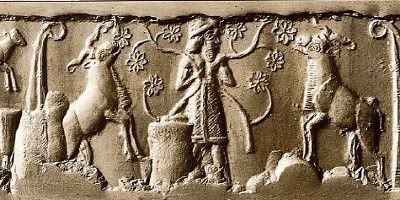
The seal shows Dumuzi being captured at his sheepfold in the Sumerian edin and bound by the serpent-like Ugalla demons who carry him off to the underworld as his bride, Inanna's replacement or surrogate. He is shown in scene one fully clothed with sceptre and crown, his hands and feet being bound with sticks, scene two: half-naked descending via Hell's gate, Scene three: fully naked in the underworld and finally, scene four: fully clothed, holding two fruit-bearing branches atop a walking serpent-dragon, showing his "return" to the earth's surface each spring as the life-force in the new plantlife or regrowth of the edin which surrounds the gods' city-gardens which man was created to toil in to feed the gods and free them of toil (for the photo cf. p. 71.Henrietta McCall. Mesopotamian Myths. [The Legendary Past series]. Austin, Texas. University of Texas Press. In co-operation with the Trustees of the British Museum, London. 1990, 1993).


The seal shows Dumuzi being captured at his sheepfold in the Sumerian edin and bound by the serpent-like Ugalla demons who carry him off to the underworld as his bride, Inanna's replacement or surrogate. He is shown in scene one fully clothed with sceptre and crown, his hands and feet being bound with sticks, scene two: half-naked descending via Hell's gate, Scene three: fully naked in the underworld and finally, scene four: fully clothed, holding two fruit-bearing branches atop a walking serpent-dragon, showing his "return" to the earth's surface each spring as the life-force in the new plantlife or regrowth of the edin which surrounds the gods' city-gardens which man was created to toil in to feed the gods and free them of toil (for the photo cf. p. 71.Henrietta McCall. Mesopotamian Myths. [The Legendary Past series]. Austin, Texas. University of Texas Press. In co-operation with the Trustees of the British Museum, London. 1990, 1993).

As I step down into the Underworld
From the Great Above
She directed her desire towards the Great Below.
The Goddess from the Great Above.
She directed her desire towards the Great Below
My Mistress left the heaven, left the earth
To the underworld she steps down
Inanna left the heaven, left the earth.
To the underworld she steps down,
Left to be a ruler, left to be a mistress.
She directed her desire towards the Great Below.
The Goddess from the Great Above.
She directed her desire towards the Great Below
My Mistress left the heaven, left the earth
To the underworld she steps down
Inanna left the heaven, left the earth.
To the underworld she steps down,
Left to be a ruler, left to be a mistress.
Who were the Sumerians?
SUMER is located in the Southern half of modern Irak. Its climate is hot and dry, its soil is windswept, it has no minerals and very little stone and timber - indeed, a land doomed to poverty. The Sumerians, nevertheless, were a gifted, energetic people, inventive and resourceful, who with the help of irrigation and a pragmatic way of life turned this deprived land in a Garden of Eden. It was in Sumer that the first great urban centres came into being, as well as the cuneiform system of writing, which was soon used all over ancient Near East. These great urban centres or temple estates were known as Eridu, Uruk, Larsa, Lagash, Nippur and Kish. Power alternated between them and community life was organised around the temple. Recorded evidence shows that by 5,000 BCE Eridu, city of Enki, the God of Wisdom, held the power, which by 4,000 BCE shifted to Uruk, Inanna's city. There were close contacts among the temple estates, and a coherent culture. Sumerian civilisation deeply influenced the peoples of the Euphrates region, North Mesopotamia and parts of Iran. Sadly, centuries of competition resulted in bitter warfare and attempts of one city to impose hegemony over another or the even the whole region Sumerian language may have been long established in the region, but has no known relatives. Written documents gradually became more easily understood and informative throughout this period. Sumerian tales, legends and songs are part of a vast literature. Evidence shows that indeed recorded history began at Sumer.
What is Mesopotamian Mythology?
Mesopotamian mythology is the collective name given to Sumerian, Akkadian, Assyrian, and Babylonian mythologies from the land between the Tigris and Euphrates rivers in Iraq.
The Sumerians practiced a polytheistic religion, with anthropomorphic gods or goddesses representing forces or presences in the world, in much the same way as later Greek mythology. According to said mythology, the gods originally created humans as servants for themselves but freed them when they became too much to handle.
Many stories in Sumerian religion appear similar to stories in other Middle-Eastern religions. For example, the Biblical account of the creation of man as well as Noah's flood resemble the Sumerian tales very closely, though the Sumerian myths were written many centuries earlier than the Tanakh (Old Testament). Gods and Goddesses from Sumer have distinctly similar representations in the religions of the Akkadians, Caananites, and others. A number of stories and deities have Greek parallels as well; for example, it has been argued by some that Inanna's descent into the underworld strikingly recalls (and predates) the story of Persephone.
The posting of this information was assisted by Wikipedia.
The Sumerians practiced a polytheistic religion, with anthropomorphic gods or goddesses representing forces or presences in the world, in much the same way as later Greek mythology. According to said mythology, the gods originally created humans as servants for themselves but freed them when they became too much to handle.
Many stories in Sumerian religion appear similar to stories in other Middle-Eastern religions. For example, the Biblical account of the creation of man as well as Noah's flood resemble the Sumerian tales very closely, though the Sumerian myths were written many centuries earlier than the Tanakh (Old Testament). Gods and Goddesses from Sumer have distinctly similar representations in the religions of the Akkadians, Caananites, and others. A number of stories and deities have Greek parallels as well; for example, it has been argued by some that Inanna's descent into the underworld strikingly recalls (and predates) the story of Persephone.
The posting of this information was assisted by Wikipedia.
I am Inanna, hear me roar
Hey everyone! I posted some new pics!!
This is me when I put on a few pounds after I had the baby.
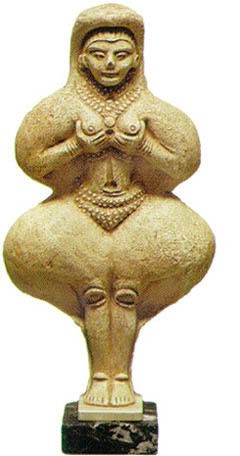
This is me when I was in high school. I hung out with a couple owls then. We used to watch tv in my parents basement,partied--the usual stuff
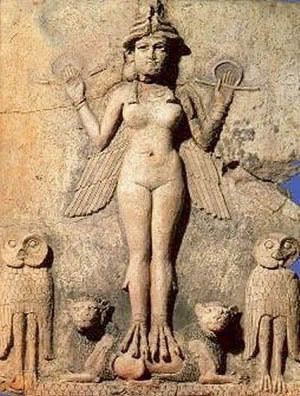
Here is a picture of an orange tree that is abundantly bursting with fruit. No need to thank me.
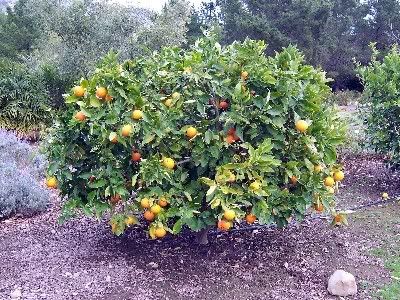
Here is a box with my symbol on it. Don't open the box!!!!

This is a picture of the boys' hearts in Tahoe. Made of ICE.

Two Red Flowers in a Campus located in Carpinteria.

Look closely and you will see a bee (the bee is helping to pollinate or as I like to call it "making love" with the flower

This is me when I put on a few pounds after I had the baby.

This is me when I was in high school. I hung out with a couple owls then. We used to watch tv in my parents basement,partied--the usual stuff

Here is a picture of an orange tree that is abundantly bursting with fruit. No need to thank me.

Here is a box with my symbol on it. Don't open the box!!!!

This is a picture of the boys' hearts in Tahoe. Made of ICE.

Two Red Flowers in a Campus located in Carpinteria.

Look closely and you will see a bee (the bee is helping to pollinate or as I like to call it "making love" with the flower

Some call me Ishtar
LOVE TO ALL WHO ENTER HERE

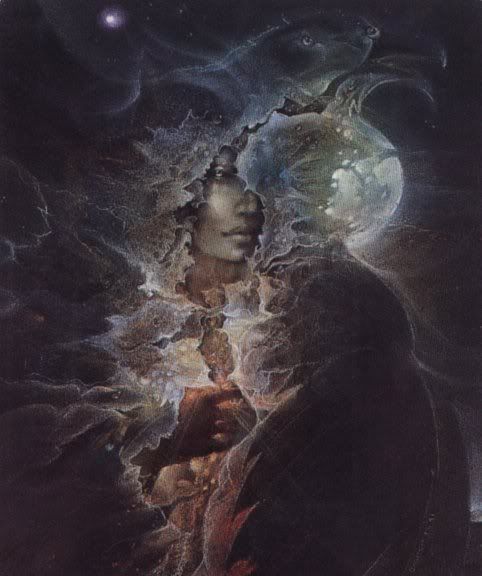
I am known as Inanna, the goddess of Love. From the folds of the curtains of history, the sands of time, and ancient Mesopotamia I have emerged. My powers have not weakened with time, in fact they have strengthened. All who visit this shrine will be showered with gifts and calls from lovers and their dance card will be full. Please, leave a post if you have any questions regarding love or lack thereof. Here is the entrance to another one of my shrines. http://inanna.virtualave.net/inanna.html


I am known as Inanna, the goddess of Love. From the folds of the curtains of history, the sands of time, and ancient Mesopotamia I have emerged. My powers have not weakened with time, in fact they have strengthened. All who visit this shrine will be showered with gifts and calls from lovers and their dance card will be full. Please, leave a post if you have any questions regarding love or lack thereof. Here is the entrance to another one of my shrines. http://inanna.virtualave.net/inanna.html
Subscribe to:
Comments (Atom)

